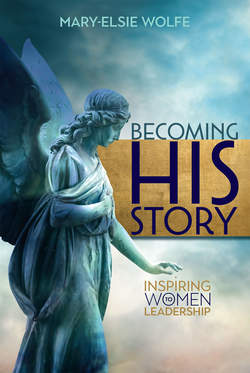Читать книгу Becoming His Story - Mary-Elsie Wolfe - Страница 11
На сайте Литреса книга снята с продажи.
ОглавлениеChapter 3
The Truth About Women
“Did you wash your hands?”
”Yes, Mom,” she said with a slight hesitation in her voice.
“You did?” I inquired.
“Yes, Mom, I did.” This time, a little emphatic.
Mentally calculating the time that would be required to actually go the bathroom, turn on the tap, pump the soap dispenser, turn off the water, and reach over for a hand towel, I asked again, “Are you sure you washed your hands with soap?”
“Yes, Mom, I did!” She stepped back, clearly defining her personal space far away from mine.
“Here, let me smell them,” I persisted. She opened her craft-filled hands, marked with the evidence of glue-flaked fingertips, sheepishly waiting for me to smell her hands. As I paused and looked into her eyes, I said with encouragement, “Maybe you should wash them again.”
It’s difficult in a world of quasi-truth to believe that truth actually exists. In fact, the task of discerning truth can be daunting in the midst of opinion pieces, news articles, and the views of different spokespeople with agendas. But Jesus claims truth, even when our culture denies it. In our current world, circumstances and situations can determine the heart of most matters.
I recall hearing an interview with legendary ’70s–’80s artist Lionel Ritchie. The interviewer asked him to explain what he meant by the lyrics of his song “My Heart Is Aching Just for You.” He stated that it was written for all of us—for himself. He recalled how, when he was a child, right and wrong were black and white. He added, “In our current age, everything is circumstantial and grey…and everyone now uses God for their own purposes.”
Lionel Ritchie may not have realized that he was actually stating simply what philosophers have been observing for years. People who write about the change of eras say that the era in which we currently live (commonly called postmodern—the time that follows the modern era) characterizes truth as fabrication. In other words, people are free to believe in whatever truth they deem fits their situation and circumstance. We ask them, “How is it working for you?” If it is working, then we accept it as their personal truth.
The problem with this conclusion is that Jesus claims truth in the Gospel of John, even referring to himself as being the truth. It is in fact a book of God’s truth. Believers in God are invited to meet the source of truth in John. Through John’s message, we see women of different generations invited by Jesus personally to see his arms outstretched with a welcoming presence to meet their call. Angela Ravin-Anderson writes,
Because Jesus provided no explicit teaching with regard to the roles of women in ministry, his position on the topic can best be ascertained by observing his actions and listening to his words as he interacts with the women in his world.4
It is like Jesus is saying that although there might be baggage from misunderstandings, misguided teaching, false assumptions, or even excuses in the name of obedience, “You should open your eyes to see how I interacted with women while here on earth.”
I remember a very academically gifted man in seminary discussing the issue of God’s call to women. While we agreed on many issues, he concluded that, still, women should not be given positions of leadership in the church; nor should they teach men. I believe that an honest look at Jesus disputes that claim.
I fear that any Christian church still not operating in light of Jesus’ actions toward women will miss out.
Some of us are in our bubbles, oblivious to the fact that Christian women around the world face inadequate teaching on this issue. Cultures and church contexts read into their own bias that Jesus called 12 male disciples. Therefore, only men should be called as leaders.
Church history reveals differently. It was commonly understood in the 18th and 19th centuries that the early church was egalitarian and only “supplanted to hierarchical leadership in the second century.”5 Some would call it even a truism that Pauline churches and some parts of the Jesus movement in Galilee were egalitarian.6
But while some researchers and academics have come to these conclusions, this insight isn’t always translated into common knowledge. This is one reason why I wrote this book.
Some churches, even in the Western world, retain a bias against women. Very recently I sat in a church as a visitor where the chair of the pastoral search committee got up and emphatically, and repeatedly, talked about finding a godly man to hold the position of pastor in that church.
Where we show favour to one gender over another, thereby impeding a call of Jesus, we will be held accountable.
We will be held accountable for how that impediment has prevented us from more fully experiencing God’s kingdom here on earth—more fully being part of his story. Jesus prayed for God’s kingdom to come!
4 Angela Ravin-Anderson, “They Had Followed Him from Galilee: The Female Disciples,” Priscilla Papers 28, no. 2 (Spring 2014).
5 Mary Ann Beavis, “Christian Origins, Egalitarianism, and Utopia,” Journal of Feminist Studies in Religion 23, no. 2 (2007): 37.
6 Beavis, “Christian Origins, Egalitarianism, and Utopia,” 36.
